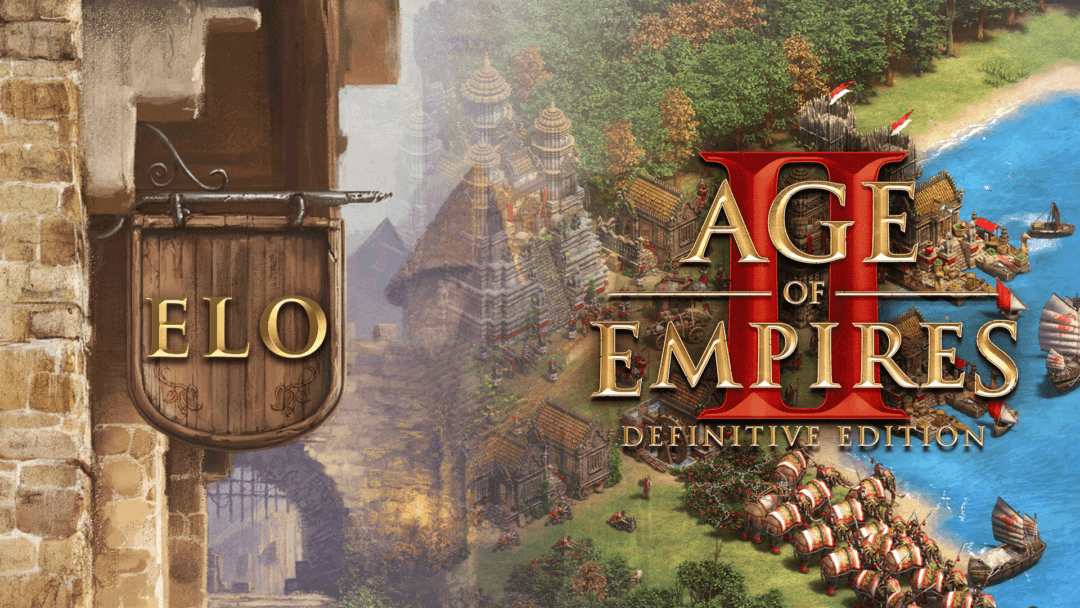
Last year, we released an update to ranked team game (TG) Elo acquisition for Age of Empires II: Definitive Edition as an initial step aimed at resolving some of the team game matchmaking and rating issues that players were experiencing.
Since then, we’ve continued to monitor this issue and take feedback about unbalanced team games and rating inflation on the team game ladder! We’re certainly aware team game Elo is inflating over time at a rate that is much higher than the 1v1 ladder, which we’ve been working in the background to address. It’s our goal to get team game Elo distribution to more evenly match 1v1 Elo distribution, which in turn should result in better matches found more quickly for players queuing for team games!
Today we are taking a large step toward resolving this issue with two changes to the way points are awarded for team games in Age of Empires II: Definitive Edition.
- The first change is a one-time adjustment to current team game Elo to help normalize player ratings. For most players, this means you’ll see your team game rating drop, as a correction toward rating inflation.
- The second change is an adjustment to the way points are awarded after a match.
Ranked RM TG Elo: Here is How it Works Now
Currently, all team members receive the same number of points for winning a match, based on a calculation according to the average Elo of each team. Example:
- Team 1
- Player A at 2000 Elo
- Player B at 1000 Elo
- Team 2
- Player C at 1500 Elo
- Player D at 1500 Elo
- If Team 1 wins:
- Both players on Team 1 gain 16 Elo (as if a 1500 Elo player beat another 1500 Elo player)
- Both players on Team 2 lose 16 Elo (as if a 1500 Elo player lost to a 1500 Elo player)
With this system, Elo still rose higher than it should for some players (notably, the higher rated players on a team with lower rated teammates.) Our initial step was intended to fix rating inflation, but when there is a large Elo difference between teammates it didn’t correct this issue as much as we had hoped.
Currently, players who team up regularly with lower rated players could artificially increase their Elo. Player A would get more points than they should, while Player B would get less than they should. This is bad news for Player B (and for his future opponents!) because Player B’s rating would be artificially low. Over time, this causes unbalanced matchmaking, and makes for a poor-quality team game experience.
The New Calculation System: Here is an Example of The Changes
We plan to correct this problem by using a player’s individual team game Elo, instead of their team average, and calculating that against the average Elo of the enemy team. Example:
- Team 1:
- Player A at 2000 Elo
- Player B at 1000 Elo
- Team 2:
- Player C at 1500 Elo
- Player D at 1500 Elo
- If Team 1 wins:
- Player A on Team 1 will gain 2 Elo (as if a 2000 Elo player beat a 1500 Elo opponent)
- Player B on Team 1 will gain 30 Elo (as if a 1000 Elo player beat a 1500 Elo opponent)
- Player C on Team 2 will lose 16 Elo (as if a 1500 Elo player beat a 1500 Elo opponent)
- Player D on Team 2 will lose 16 Elo (since their rating is the same their teammate, they lose the same number of points in this scenario)
In the example above, points awarded are based on a player’s individual Elo compared to the average Elo of the enemy team, avoiding the inflated Elo that results from high rated players regularly teaming up with less experienced or lower rated players.
One-Time Elo Adjustment
Because rating inflation has worsened over time, a one-time correction to team game Elo will correct for player ratings that have been able to climb artificially high with the current system. Again, for most players, you will find that your team game Elo has gone down, perhaps even significantly depending on how inflated your Elo has become. If you’re concerned about how this impacts your placement in the ladder, just be aware that this is true for your opponents as well! For exceptionally low rated players however, you may see your team game rating increase slightly.
Our hope is that these combined changes will alleviate rating inflation and significantly improve the user experience in matchmaking. Over time, this should help team game Elo to be distributed more fairly and lessen the number of inflated accounts at the top of the ladder.
Your feedback is always appreciated, and we will continue to listen to your suggestions on our official forums, Discord, and social channels to find ways to improve your matchmaking experience. We will continue to monitor your feedback and may make additional changes to improve the system in the future.